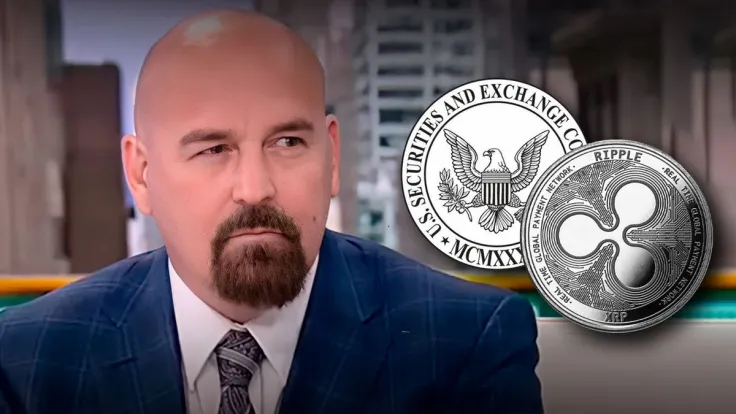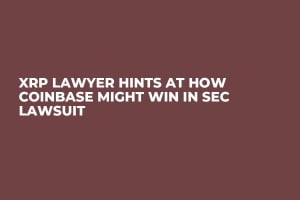
Disclaimer: The opinions expressed by our writers are their own and do not represent the views of U.Today. The financial and market information provided on U.Today is intended for informational purposes only. U.Today is not liable for any financial losses incurred while trading cryptocurrencies. Conduct your own research by contacting financial experts before making any investment decisions. We believe that all content is accurate as of the date of publication, but certain offers mentioned may no longer be available.
CryptoLaw founder John Deaton, who is also XRP holders' attorney, has pointed out an "SEC-shattering" argument in Ripple's new filing.
In an interesting twist in the SEC lawsuit, Ripple and its executives Brad Garlinghouse and Chris Larsen have filed their opposition to the SEC's motion to certify an interlocutory appeal.
Deaton highlighted a section of Ripple's argument, particularly a footnote, that indicated that the SEC had always maintained the same view that whether a given digital asset meets the Howey test at the time of its offer or sale relies on specific facts or circumstances. He says this particular fact destroys the SEC's argument on an interlocutory appeal.
On this basis, Ripple demonstrates that an interlocutory appeal is simply not warranted.
Deaton also stated that he believes Judge Torres will deny the interlocutory appeal. A similar view was expressed by Fred Rispoli, an attorney who also participated in the Ripple action, who indicated that it was difficult for him to envisage the judge allowing the SEC's motion because the legal analysis favored Ripple.
Legal experts react
Bill Morgan, an attorney and vocal member of the XRP community, is excited to see Ripple's take on ODL sales in light of Judge Torres' decision.
Ripple disputes the SEC's inclusion of ODL sales in the categorization of institutional sales.
In its argument, Ripple stated that regardless of whether its pre-complaint ODL sales were properly categorized as institutional sales, it will defend any attempt to base remedies on post-complaint ODL sales by showing that these sales do not qualify as investment contracts.
Morgan also highlighted key portions of the argument: Ripple gave notice to the Court that if the SEC is given leave to appeal, it will seek to cross-appeal on institutional sales. "This case has so much further to go," Morgan stated.
Ripple also indicated it will cross-appeal on the statutory interpretation issue of the scope of the term investment contract and the need for rights to be granted to the buyer or obligations imposed on the seller.
Attorney Jeremy Hogan commends the arguments put forward: "Ripple starts off vicious with the Youngers case. The case says that the issue to be appealed must be one of pure law. It's a high hurdle to jump over for the SEC."


 Dan Burgin
Dan Burgin Vladislav Sopov
Vladislav Sopov